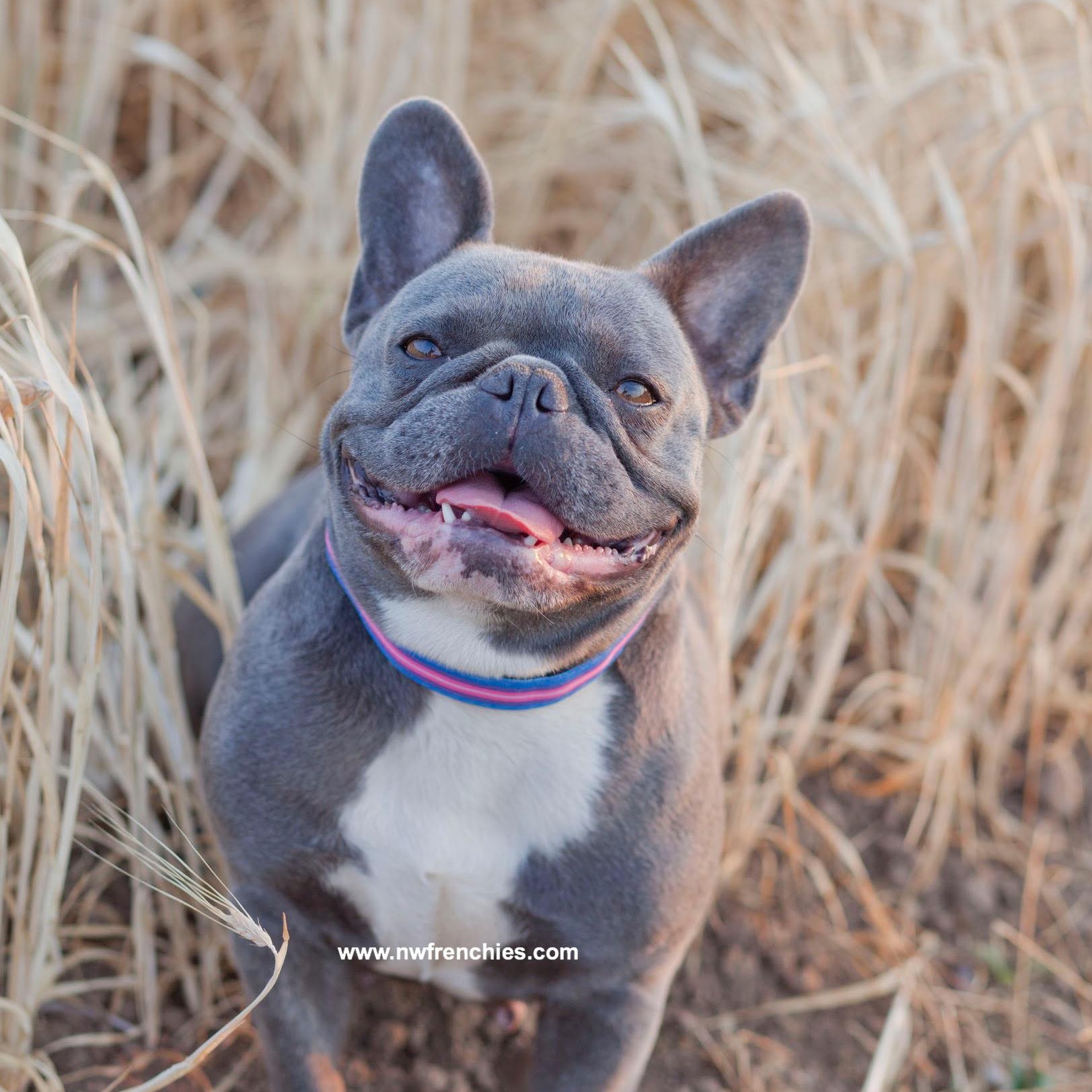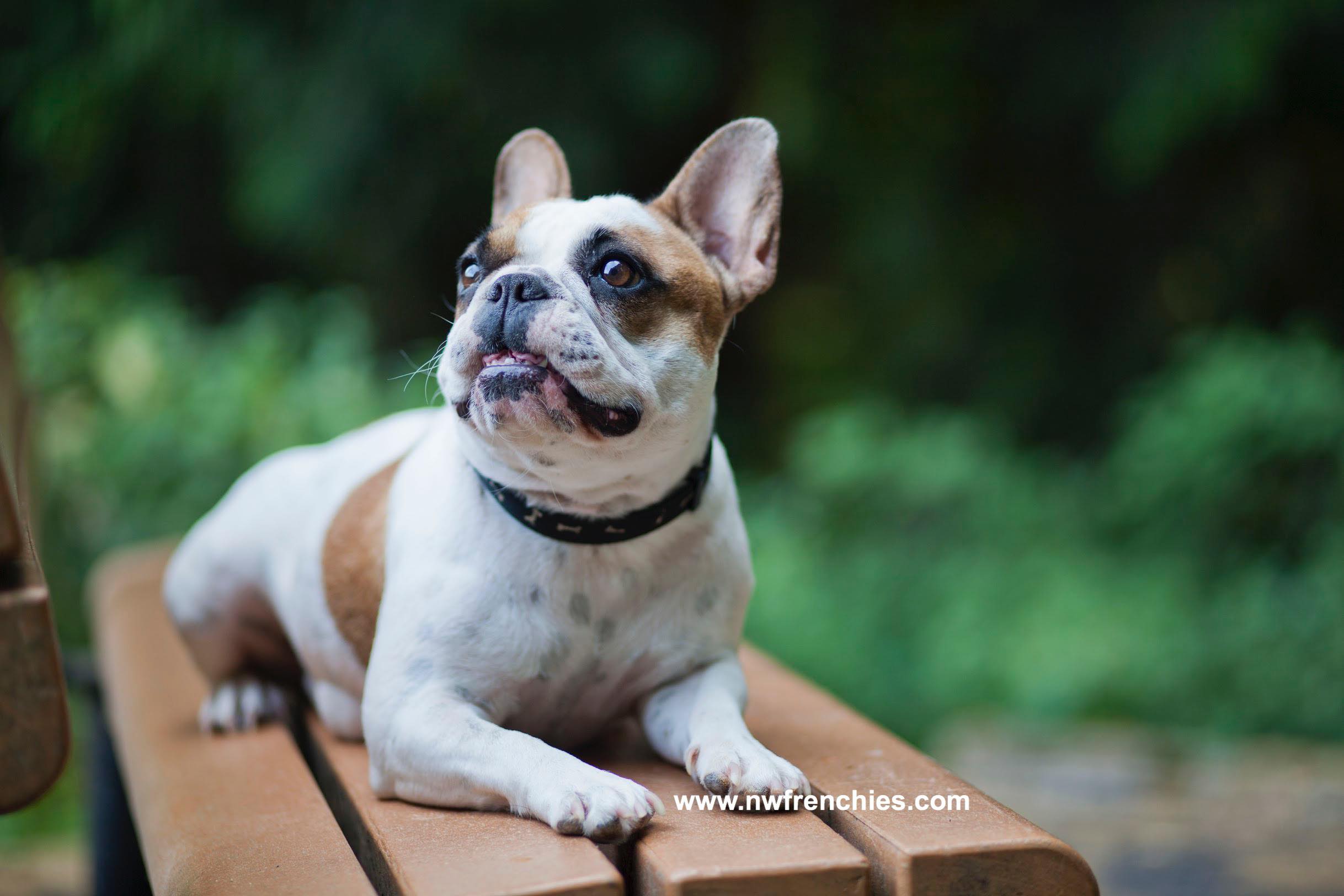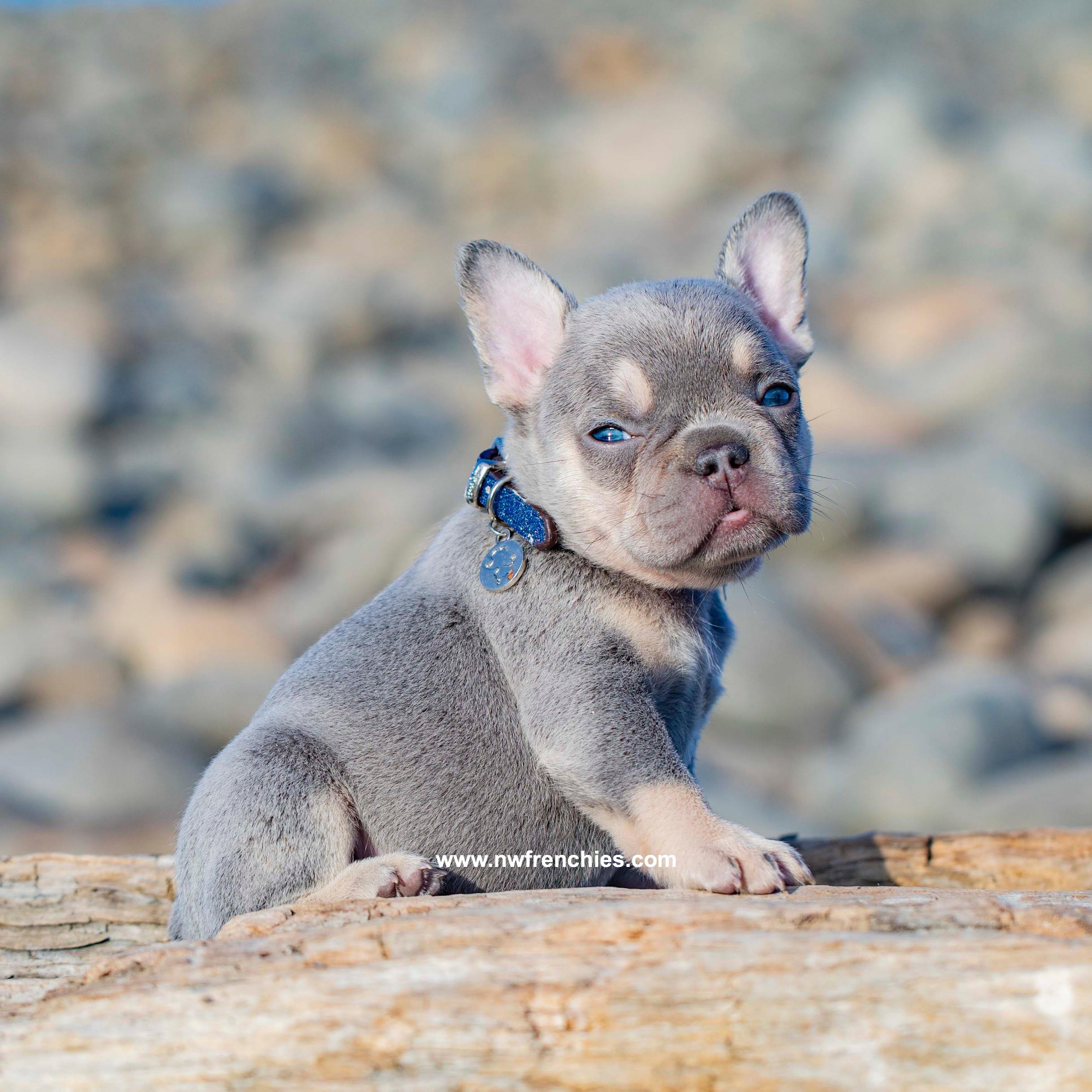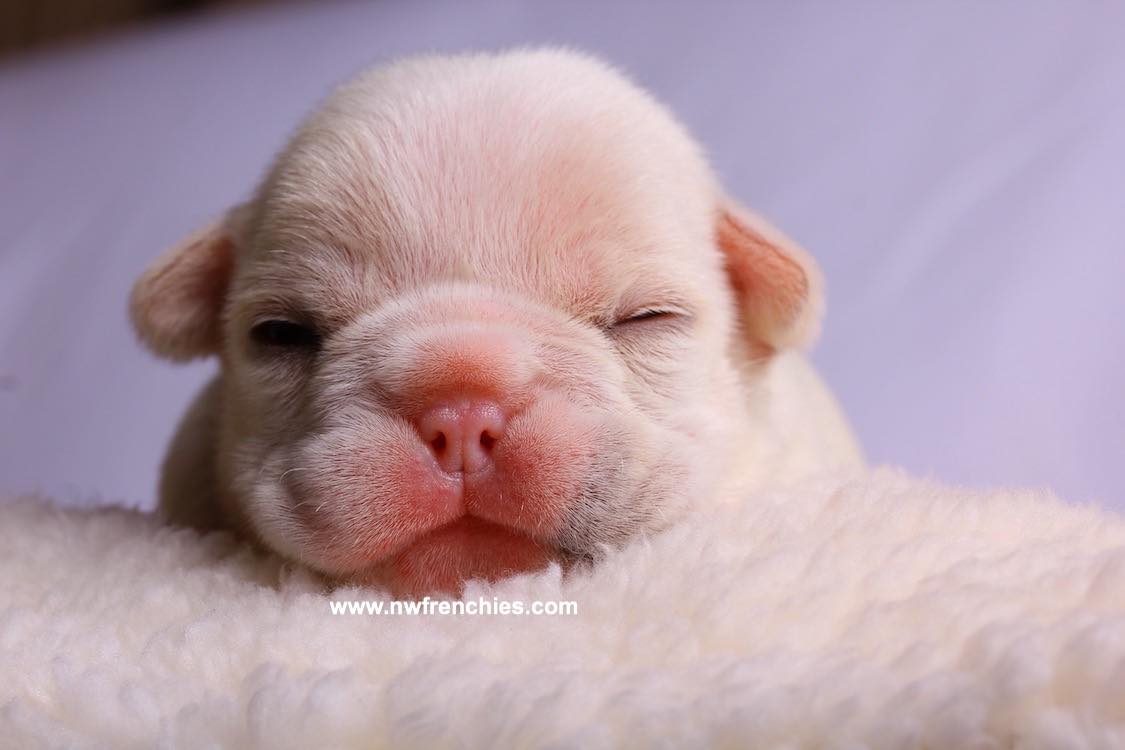Blue French Bulldog | NW Frenchies
The dilute allele (d) is responsible for producing a blue coat. This is a recessive gene, so the dog must have two copies to show the color.
Chocolate French Bulldog | NW Frenchies
The chocolate/brown allele (b) is responsible for producing a chocolate coat. This is also a recessive gene so the dog must have two copies to show the color. Breeders refer to this gene as the “Frenchie chocolate” because it is a non-testable gene. There is currently no DNA test available for identifying this gene. However we can visually see that a dog is chocolate and can also prove the dog is chocolate with a red-eye glow test. If the dog carries two copies of non-testable chocolate, then their eyes will reflect red or orange when a bright light is shined directly in the eyes. A dog that carries only one copy of chocolate or zero copies of chocolate will have eyes that reflect green or blue.
Lilac French Bulldog | NW Frenchies
Lilac is the color resulting from a dog simultaneously carrying two copies of non-testable chocolate and two copies of blue (bb dd). Lilac puppies are born silver and stay lighter in color into adulthood. Whereas blue dogs are a darker grey. The red eye glow test can be used to determine whether a dog is blue vs lilac.
Fawn Pied French Bulldog | NW Frenchies
Some genes modify the pattern of a coat rather than the base coat color. The pied gene (s), also called piebald, breaks the color up into splotches. Pied is recessive and requires two copies to show the pattern.
Chocolate Brindle French Bulldog | NW Frenchies
The dominant black allele (K), is also a pattern gene and is responsible for brindle. Brindle is a dominant gene, and requires only one copy to show the pattern.
The agouti (a) allele needs its own post as this locus is more widespread and complicated. This allele is responsible for fawn (ay), sable (ay), wild sable (aw) tan points (at), and recessive black (a). Ay is dominant to aw, which is dominant to at, which is dominant to a. Fawn and sable coat colors have the same DNA (ay)., and a fawn coat can also vary in hue, from nearly white to a very dark red.
Chocolate Sable French Bulldog | NW Frenchies
Chocolate Fawn French Bulldog | NW Frenchies
Tan Points French Bulldog | NW Frenchies
Red Fawn French Bulldog | NW Frenchies
The MCR1 (e) allele is responsible for creme (e) and mask (m). A creme coat is recessive and requires two copies to show the color. Mask is a dominant gene and only requires one copy to show the pattern.
Creme French Bulldog | NW Frenchies
Black-Masked Fawn French Bulldog | NW Frenchies
I’m sure you can imagine at this point that a dog can have any combination of color and pattern genes yielding many unique visual coat colors. Meticulous planning goes into choosing mating pairs when considering what coat colors will be born. The statistics behind what percentage of puppies will be one color vs another color is another consideration. Despite statistics though, the number of boys and girl and their colors is always a surprise.
I hope these visuals were helpful for anyone wondering about simple color genetics. This is a topic that I personally love, and I definitely plan on writing more in-depth posts on specific genes and hair pigments. Please feel free to comment down below with any questions. Sending my love and my hugs from NW Frenchies.










